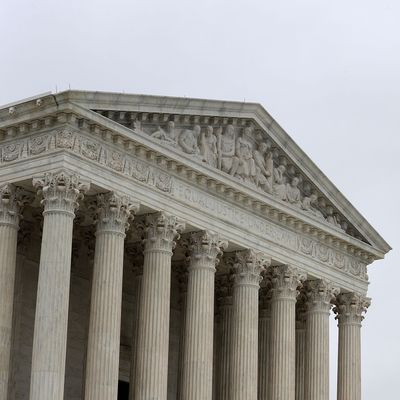
Given the 4-4 ideological deadlock on the U.S. Supreme Court, and the refusal of the Republican-controlled U.S. Senate to consider confirmation of a successor to the late Antonin Scalia, you might wonder if SCOTUS ought to take an extended vacation until January or at least November 8. But no: The Court does not roll that way. And so, it formally began its fall term on Monday with announcements of cases it would and would not become involved in, as decided in last week’s private preterm conference.
The judicial bullets the Court dodged involved, of course, the big cases involving high-profile, controversial issues: the state-court shutdown of an investigation of illegal practices conducted by Scott Walker’s campaign during a 2012 recall election; an antitrust suit against the NCAA; a federal judge’s injunction against implementation of the Obama administration’s executive order protecting DREAMers and their parents from deportation; and various lower-court decisions allowing or preventing restrictions on voting rights.
There are, as it happens, a few cases involving racial-discrimination claims that have made it onto the SCOTUS docket: one involving consideration of race in a Texas death-penalty case; another revolving around racially discriminatory utterances by a juror; and still another, which could be a very big deal, flowing from a city of Miami lawsuit against two major banks for predatory lending activities targeting minority borrowers.
Departures from the 4-4 deadlock will depend on the exact case, though, in general, a liberal majority will occur when Justice Kennedy hops the fence to side with Justices Ginsburg, Breyer, Sotomayor, and Kagan. If a justice can be nominated and confirmed early next year, we’ll see either the creation of a liberal majority without Kennedy or a reassertion of the balance of the Court before Scalia’s death. There is even a scenario where leading Republicans agree to confirm Obama’s nominee, Merrick Garland, during a post-election lame-duck session to avoid a more liberal appointment by Hillary Clinton. But expecting an end to the gridlock in either Congress or the Court that soon seems an especially poor bet.






























